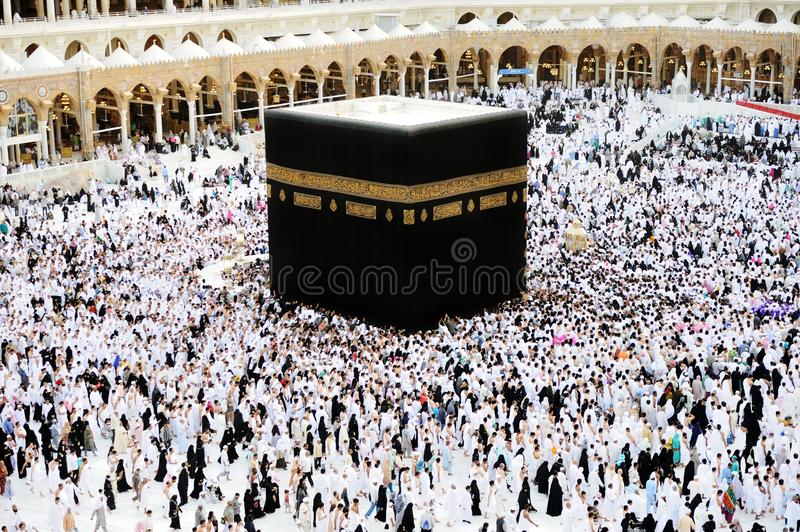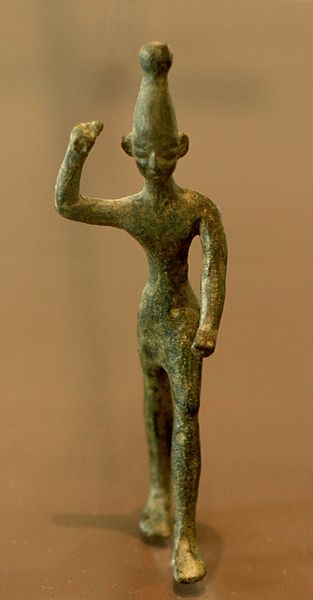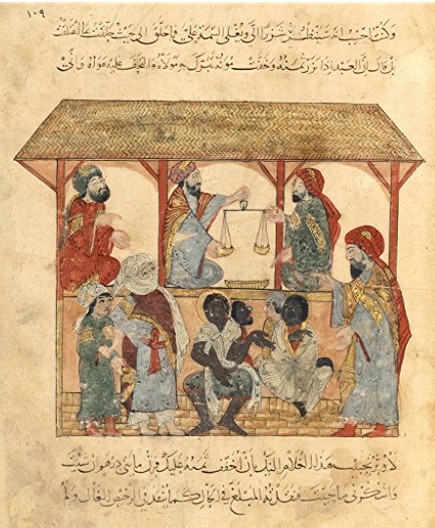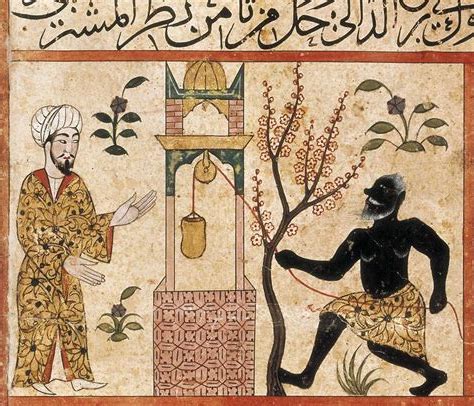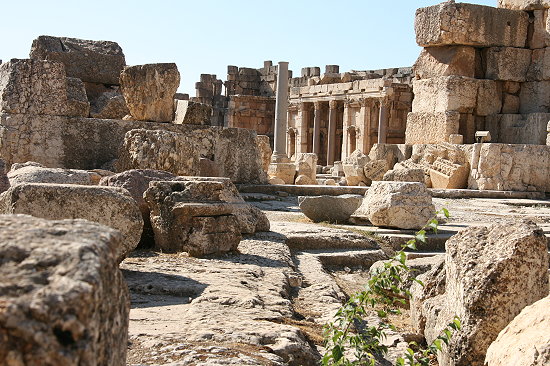
Arabs are the source of many rulings, rules, regulations and customs promoted and legislated by Islam. One could even say that Islam is the legacy of the Arabs with respect to a large part of all the practices of worship and customs of Muslim societies across the globe.
THE TITLE OF THIS ESSAY comes from one of the books of the late Khalīl ‘Abd al-Karīm in which the author categorically denies that one could describe the pre-Islamic Quraysh community as jāhilī (‘pagan, ignorant’). For evidence he cites the words of ‘Umar ibn al-Khattāb: “Arabs are the raw material for Islam”, the meaning being:
Arabs are the source of many rulings, rules, regulations and customs promoted and legislated by Islam. We might even say, quite confidently, that Islam is the legacy of the Arabs with respect to a large part of all practices of worship and society.
For instance, in the Arabian peninsula, prior to Islam, there were no less than 21 Kaʽbas, albeit the Arab tribes were as one in sanctifying the Meccan Kaʽba. According to the Muʽallaqa[1] poem of Zuhayr ibn Abī Salmā:
I swear by the temple, round which walk the men who built it from the tribes of Quraysh and Jurhum…
While Ibn al-Kalbī in his work Al-Asnām (‘The ‘Idols’) states that:
Arabs used to celebrate the Kaʽba and Mecca and in the tradition of Ismāʽīl would extol the Kaʽba, the Hajj and the ‘Umra.
Then, when Islam came, it perpetuated the sanctification of the Kaʽba. In view of the glorification of the Quraysh over all other tribes, some legal schools grant a Qurayshī, and particularly a Hāshimī, woman the right to divorce if she is married to a non-Qurayshī or non-Hāshimī, on the grounds of unsuitability. They base this on the Prophet’s hadith:
The Arabs are not of the standing of the Quraysh, and the client peoples are not of the standing of the Arabs.
Prior to Islam the Arabs used to perform the pilgrimage every year in the month of Dhū al-Hijja. They would journey to Mecca to carry out the hajj obligation, performing the same rites that the Muslims perform today, with just the one exception, the dispensing with polytheistic expressions in use before Muhammad’s preaching. Similarly, the month of Ramadan was considered holy and the holy months considered sacrosanct. Ibrāhīm and Ismāʽīl were extolled since for pre-Islamic Arabs these were the builders of the Meccan Kaʽba. In the words of ‘Umar ibn al-Khattāb:
I agreed with my Lord on three matters, and my Lord agreed with me on three. “O Messenger of God”, I said, “what if we were to turn Ibrāhīm’s tomb into a place to worship?” And there then appeared the Qur’ānic revelation: Take as your place of worship the place where Abraham stood (to pray) [Qur’ān II,125]
Likewise the Friday gatherings predate Islam.
Before the rise of Islam there emerged a religious movement with a distinct presence: Abū ‘Amir al-Rāhib in Yathrib, Umayya ibn Abī al-Salt in Tā’if and Zayd ibn ʽUmar ibn Nufayl and Waraqa ibn Nawfal (the nephew of Muhammad’s first wife Khadīja) in Mecca. Dr. Sayyid el-Qimny sees that ‘Abd al-Muttalib (the direct grandfather of Muhammad) was a teacher of Hanīfiyya, a community of Arab thinkers the repudiated the worship of idols but were not affiliated with Judaism or Christianity, calling instead for the singleness of God.
Prior to the rise of Islam the practice of ‘spitting upon knots’ was an act of sorcery; Islam instituted that too
Dr. Sayyid ‘Abd al-ʽAzīz Sālim in his work Studies in Pre-Islamic Arab History, states that they saw ‘God’s religion was the Hanīfiyya’, and that they held that ‘monotheism was the faith of Ibrāhīm’. He noted also that the following salient features of this religious movement: aversion to idolatry, the prohibition of interest and the drinking of alcohol, along with penalties for those that consumed it, and the prohibition of adultery, again with penalties for those that infringed this prohibition, and the purgative retreat to the cave of Hirā. Muhammad’s grandfather ‘Abd al-Muttalib decreed the severing of the hand of the thief, there was also a prohibition on eating meat from carrion or consuming the blood or flesh of the pig, a ban on female infanticide, the obligation to fast, to wash away impurity, a belief in resurrection, and a belief that he who performs righteous deeds will enter into Paradise while he who does evil is destined for Hellfire:
All of this is associated with the main tenet that united the Hanafīs, which was the belief in one sole God and the call to worship Him.
With respect to social custom the pre-Islamic Arabs believed in the power of envy and the influence of the envier over the subject of his envy; when Islam came it perpetuated that. Prior to the rise of Islam the practice of ‘spitting upon knots’ was an act of sorcery; Islam instituted that too, as illustrated in the sūrat al-Falaq:
Say: “I seek refuge with the Lord of the daybreak, From the evil of what He has created; And from the evil of the darkening (night) as it comes with its darkness; or the moon as it sets or goes away And from the evil of those who practise witchcrafts when they blow in the knots, And from the evil of the envier when he envies.” [Qur’ān CXIII]
Arabs depended upon the camel and thus many pre-Islamic poets referred to them in their works. When Islam came it accorded them a special importance in several sūras (al-Anʽām, al-Nahl, al-Mu’minūn) and licensed unlimited polygamy, whereby the man was referred to as ‘Baal’ – the name of an ancient God. In Semitic languages baʽal means ‘owner’, and it is a name found in the Old Testament referring to one of the gods of Canaan worshipped in its various sites. Prof. Khalīl notes that the word ba’al has a suggestive meaning, since it is contrasted with the passive form mabʽūl, here meaning the female spouse, in the sense of a ‘possessed woman’ or ‘slave’ to her baʽal (‘owner’). The word thus deprives the female spouse of any feeling she may have of self-reliance or status, or even any sense of existing. And it instils in her compliance and obedience and absolute conformity and approval of the functions the baʽl defines for her: bodily pleasure. Islam came and perpetuated polygamy:
And if you fear that you shall not be able to deal justly with the orphan¬girls, then marry (other) women of your choice, two or three, or four but if you fear that you shall not be able to deal justly (with them), then only one or (slaves) that your right hands possess. [Qur’ān IV,3]

Suggested Reading
There is an opinion that carries some weight among certain Qur’ān commentators that holds that this verse does not stipulate stopping at four wives. Even this limitation did not prove an obstacle to Arab tradition, in that a way was left open to get round it and enjoy any number of wives: divorce. For it is the right of the Muslim to divorce his wife and marry another on condition that at any one time he does not avail himself of more than four wives. But this is aside from slave girls, maidservants or concubines or ‘what his right arm possesses’, for there is no limit to how many of these he may possess. So we see some of the Companions marrying an ample number of wives aside from slaves: ‘Umar ibn al-Khattāb married nine, as did ‘Uthmān ibn ‘Affān and ‘Alī ibn Abī Tālib. We see some distinguished Muslim ladies marrying five times.
Islam adopted the term baʽl to indicate ‘husband’ (Qur’ān, IV,128; XXIV,31), a term widely used by pre-Islamic Arabs even though the Qur’ān set aside the term baʽl to denote gods worshipped other than Allah:
Will you call upon Baʽl and forsake the Best of creators, ‘Allâh, your Lord and the Lord of your forefathers?’ [Qur’ān XXXVII, 125-6]
According to the commentators Mujāhid, ‘Akrama, Qutāda and Sudā the word baʽl in Yemen denoted ‘lord’, indicating that the Qur’ān’s preserving of the term baʽl to indicate the husband is an extension of the prevalent pre-Islamic conception. Other texts supporting this include the Prophet’s hadith:
Were I to command anyone to prostrate before someone I would have commanded the wife to prostrate herself before her husband. [Tirmidhī and al-Nisā’ī]
The subjugation of the wife to her ba’l even gets to the point that she is in not allowed to perform supererogatory devotions, such as fasting outside the month of Ramadan, without his permission.
There are other hadith on this theme:
A people that place a woman in command shall not prosper
Women are deficient in intellect and religion
The woman is also worth half a man in the value of her testimony:
Get two witnesses out of your own men. And if there are not two men (available), then a man and two women [Qur’ān II,282]
The same goes for inheritance:
The word thus deprives the female spouse of any feeling she may have of self-reliance or status
In the case of the death of the wife her husband inherits half of her property if he has no offspring. Islam also perpetuated the superiority of the male over the female and his right to beat her. In response to those who defend Islam emotionally instead of from a position of knowledge, Khalil notes that:
The standpoint of Islam generally with respect to women (whether as a wife, a daughter or sister and so on) and the standpoint which the holy texts categorically define it to be, is in entire agreement with the standpoint of the pre-Islamic Arabs.[2]
The discrimination between Arabs and other peoples
The Arabs prior to the rise of Islam were very haughty and considered all others as ‘ajm (‘barbarians’). The ‘ajm,according to al-Rāzī’s Mukhtār al-Sihāh are:
‘Non-Arab’; the singular is ‘ajmī and they suffer from deficiency in speech (‘ajma); the term ‘ajmā means ‘beast’.[3]
That is, all the people of the world are ‘animals’ except the Arabs. Their fanaticism gets to the point of superiority over other nationalities in their refusal to accept any affinity with non-Arabs. One of the many examples of this is that which occurred with the Persian Companion Salmān, to whom ‘Umar ibn al-Khattāb refused to marry off his daughter since he was neither Arab nor Qurayshī. The Qur’ān perpetuated the term a’jamī in several sūras such as:
And if We had revealed it (this Qur’ān) unto any of the non-Arabs (a’jamīna), And he had recited it unto them, they would not have believed in it. [Qur’ān XXVI,198-9]

Suggested reading
The discrimination between Arab and ‘ajm was continued. The enemies of the Abbasid state termed it disdainfully the ‘Ajamī State, since it was founded upon the swords of the Khurasanians who were ‘Ajamīs (a’ājim) and most of their caliphs’ mothers’ had been maidservants (‘ajamī slaves). People of Baghdad used to mock the Caliph al-Ma’mūn for his having had a Persian mother (al-a’jamiyya), while books were circulated on the ‘Virtues of the Arabs’ and the ‘Defects of the ‘Ajm’, the most famous being Ibn Qutayba’s Tafdīl al-‘Arab (‘The Superiority of the Arab’). Khalil notes that:
Nothing we have mentioned should be the cause of any wonder given that the habits of the pre-Islamic Arabs remained alive in the hearts of those who came after them, and indeed have been bequeathed to this day.[4]
The disdain for agriculture
Arabs before the rise of Islam earned their living by the sword (intertribal warfare) or by trade. When the Qur’ānic sūrat Quraysh [Qur’ān CVI] mentions the term īlāf (‘taming’), its origin goes back to Hashim (‘Amr al-‘Ulā) the grandfather of Muhammad, as confirmed by pre-Islamic poetry such as:
‘Amr al-‘Ulā, who ground up gruel for his folk, at the winter travel and the īlāf trek. [5]
As to their view on agriculture, the nomads frequently imposed a tax upon the farmers on the pretext of providing them with ‘protection.’ Perhaps this tax is the historical origin of what later came to be known as the jizya, which Arabs imposed upon ‘ajamī peasants – that is, beasts. This perception of farmers and farming was prevalent among the Arabs before the Muhammadan call, and when Islam came it merely perpetuated it. For instance, one of the hadith of the Prophet runs:
If you bargain commodities, or hang onto the cow’s tail and content yourselves with tilling the soil and abandon the jihad, God shall bring down humiliation upon you until you return to your faith.
Before Islam the Banū Hanīfa were one of the rare tribes that practiced farming. Other tribes viewed them with disdain; the poet Jarīr al-Khatfī penned an ode in which he cast shame upon the Banū Hanīfa for practicing farming, and the same attitude was expressed in the ode by Anas ibn Abī Anās when he addressed the Banū Hanīfa as “slaves from the first to the last of them”.[6]
Slavery
Al-ʽAqqād claims that Islam ‘legitimised manumission, but did not legitimise slavery’, but Prof. Khalīl disagrees, writing that this is only partially true. If Islam did not legitimise slavery it nevertheless permitted it and did nothing to prohibit it. The Prophet Muhammad, the Orthodox Caliphs, the Ten Vouchsafed Paradise[7] and other Companions, Muslim imams and others all possessed slaves and this situation carried on until slavery was abolished by positive laws. Al-ʽAqqād is wrong to say that Islam recognised only ‘captive slaves’ taken as a result of intertribal warfare, which later turned into raids and conquests. Islamic law recognised ‘slaves to buy and sell’ as a necessary product of ‘slaves captive following conflicts’ and that the possessor of a slave or a maid servant had the right to sell them. Islam also recognised ‘debt slaves’ and al-ʽAqqād failed to notice that the Prophet Muhammad, before the revelation of the verses on ribā (‘interest’) decreed the enslavement of someone who was unable to repay his creditor’s debt. If, for the sake of argument, we accepted what al-ʽAqqād says about Islamic law only recognising ‘captive slaves’ resulting from warfare, then this allowance for this type of slavery is itself naught but a legacy from pre-Islamic tribal Arab custom which accorded the victorious tribe the right to enslave members of the defeated tribe. As the Imam al-JawzI put it: ‘Islam confirmed Arab traditions.’[8]
If Islam did not legitimise slavery it nevertheless permitted it and did nothing to prohibit it
War booty
‘Udayy ibn Hātim said: “I quartered in jāhiliyya, and fifthed in Islam”, that is that in the pre-Islamic period he used to reserve for himself a quarter of the spoils, but when Islam came this was reduced to a fifth, as mentioned in the Qur’ān’s sūrat al-Anfāl (‘The Chapter of the Spoils’):
And know that whatever ye take as spoils of war, lo! a fifth thereof is for Allah, and for the messenger and for the kinsman (who hath need) [Qur’ān VIII,41]
From the battles that took place prior to Islam we may deduce that the custom was established among Arab tribes that a combatant in an attack or skirmish had the right to take exclusive possession of the spoils of the one slain by him. This tribal custom was carried over into Islamic law, and the messenger of God decreed that all the spoils – not a fifth – should go to the combatant. The safī was what the army commander chose to keep himself prior to the process of dividing up the spoils. From every portion of the spoils the Prophet picked out for himself a slave, a servant-girl or a horse. The khums (‘fifth’ tithe) was one of the most important sources of income for the Islamic state after the death of Muhammad, particularly after the period of raids and conquests.[9]
The caliphate
The Persian Salmān confirmed that the Prophet taught them everything, even how to relieve themselves. That is, he left no matter large or small without leaving instructions to his Companions and the Muslims who came after on how to behave, even in matters not directly connected with worship such as how to dress, how to enter bed with one’s freeborn wife or slave-girl (‘what thy right arm possesses’). Why, then, did he not leave a single hadith indicating who should assume the caliphate after him, or how he was to be elected or how the system of rule was to be organised under Islam? The answer suggested by Prof. Khalīl is that
the Muslims – or, more accurately, the peninsula Arabs and the Quraysh in particular – did not feel that there was any notable change, in the Islamic period, to how they ran their affairs in the jāhiliyya period, except in the matter of the values that governed them. Muhammad’s leadership of the Islamic community did not differ from the way his ancestor Qusayy governed the Quraysh.
Dr. H. F al-Najjār notes that the Prophet:
gave no indication to the Muslims as to how the Islamic community was to be governed. He laid down no hard and fast rules for the system of government and made no changes to the way people directed their affairs.
In any case the Islamic caliphate turned into a means for looting other peoples’ resources, given that
the conquests that were carried out poured into the coffers and pockets of the Muslims legendary amounts of wealth that they could only have dreamt of before.
Concerning the pastoralist environment and the social situation during the pre-Islamic period al-ʽAqqād remarked that
naturally people did not stick to the Sunna of the Prophet for more than one generation, following which things reverted to their previous nature.
If Muʽāwiya, out of hoary custom, inherited the caliphate, Prof. Khalīl is of the opinion that
if anyone else had preached of Paradise or Hellfire, he would have taken the same track and did what Muʽāwiya did … the evidence for this is that the system of inherited rule persisted in all Islamic states, Sunni or Shīʽa, from the East to the West right up to the end of the Ottoman Caliphate, or indeed is still in operation today.[10]
The ‘shūra = democracy’ lie
From a historical point of view the pre-Islamic Arabs knew the concept of shūra (‘council’) as appears in the Islamic period, whereby the ‘assembly of the shūra’ has no real role and is merely an opinion that ruler may, or may not, adopt. When Abū Bakr decided on initiating hostilities in the ‘Apostasy Wars’ he insisted on his own view despite the opposition voiced by a committee of his councillors who asked “How can you wage war people who declare that ‘there is no God but Allah and that Muhammad is His Messenger’ and who perform the prayer?” The view that the shūra was legislated in order to place controls over the ruler is not correct. From this starting point one can see the extent of the trap that those who claim that shūra is democracy fall into. The shūra is a legacy from Arab tribes prior to Islam, and the conclusion that Prof. Khalīl comes to is that the Arab tribes protected Muhammad’s mission by their traditions, customs, systems and beliefs, all of which constitute proofs or prototypes for Islam. Consequently, Islam and Arabism are two sides of the same coin.
One can see the trap that those who claim that shūra is democracy fall into
In my view the work The Historical Roots of Islamic Sharīʻa was completed by Prof. Khalīl’s other study: The Formative Period in the Life of Muhammad,[11] which details the conditions that prepared the ground for the idea of the prophecy, particularly with Khadīja’s insistence on marriage to Muhammad despite the age gap between them (25 years), the role of her cousin Waraqa ibn Nawfal, Muhammad’s complete retirement from work following his marriage, and the role of the monk Bahīrā and all the other personalities and circumstances that set the scene for the appearance of Muhammad as the propagator of Islam.
[1] So named for its having been one of the poems honoured with posting up on the walls of the Kaʽba.
[2] Khalīl ‘Abd al-Karīm, الجذورالتاريخية للشريعة الإسلامية p. 47.
[3] Al-Rāzī’, Mukhtār al-Sihāh, Amiriyya Edition, 1911, p.440.
[4] Khalīl ‘Abd al-Karīm, op cit, p. 51.
[5] From the poem cited by al-Kalbī and referring to ‘Amr al-‘Ulā’s feeing of the people of Mecca during a seasonal famine by pounding (hashm) gruel for them, for which he was named Hāshim, ‘The Grinder’. The incident is said to reflect the contest for influence at the Meccan shrine, whereby Hāshim won the right to feed pilgrims to the site. (Ed.)
[6] Khalīl ‘Abd al-Karīm, op cit, pp. 57-61.
[7] In Sunnī Islam the ‘Ten Vouchsafed Paradise’ are those who in the hadith are promised their place in Heaven for their outstanding virtue.
[8] Khalīl ‘Abd al-Karīm, op cit, p. 80-82.
[9] Khalīl ‘Abd al-Karīm, op cit, pp. 95-100.
[10] Khalīl ‘Abd al-Karīm, op cit, pp. 103-120.
[11] Khalīl ‘Abd al-Karīm, فترة التكوين في حياة الصادق الأمين.
Main image: The temple of Baalbek, Lebanon. The name is understood variously as ‘Baʿal (lord) of the Beka (Valley)’, or ‘Baʿal Nebeq – ‘Lord of the Source’ (of the Litani River)’.
